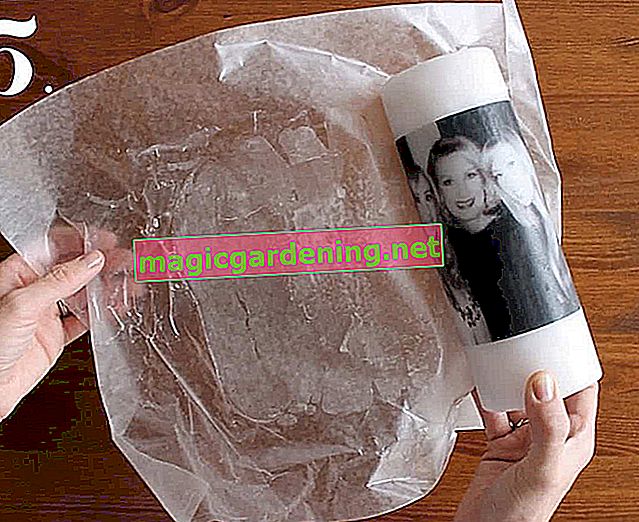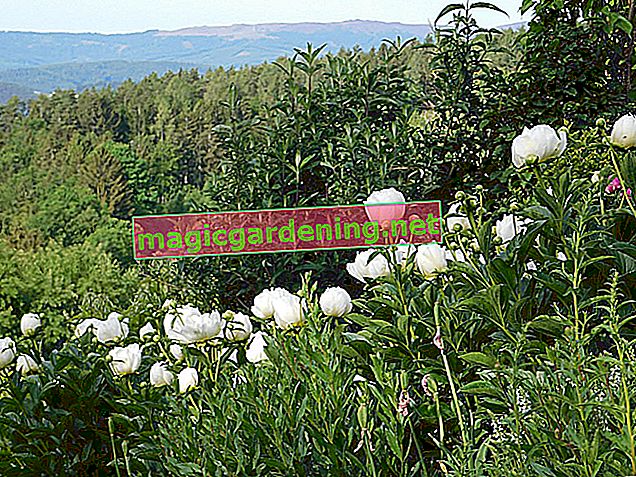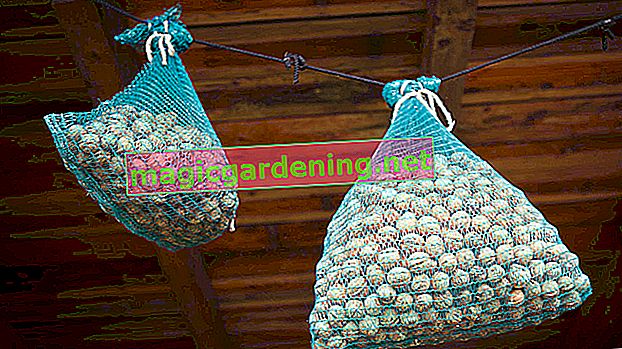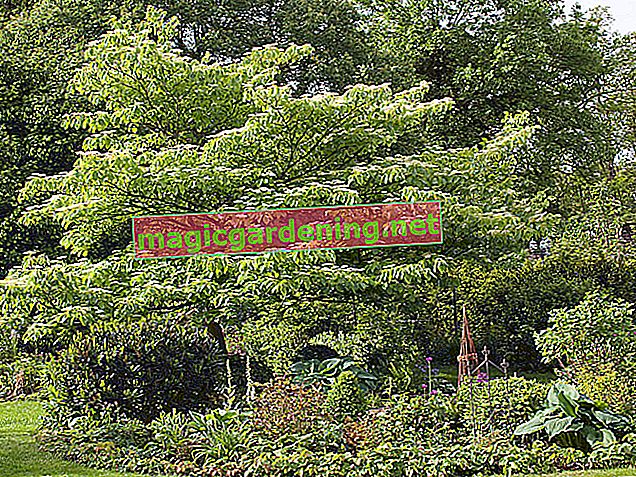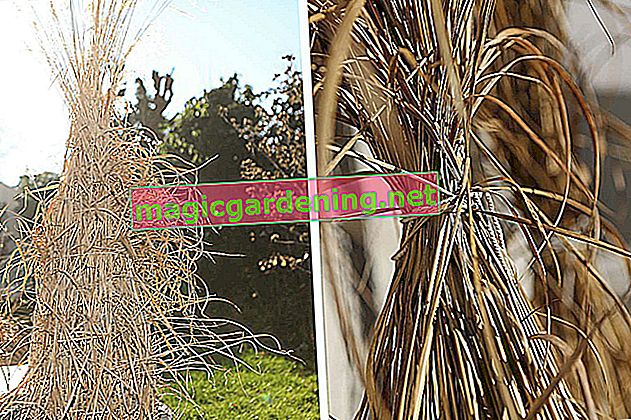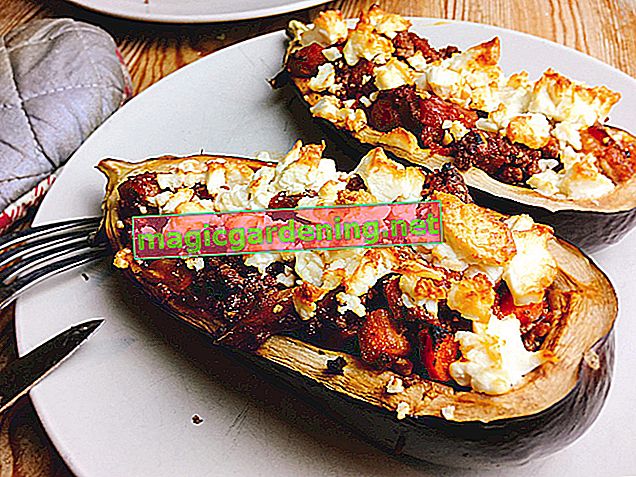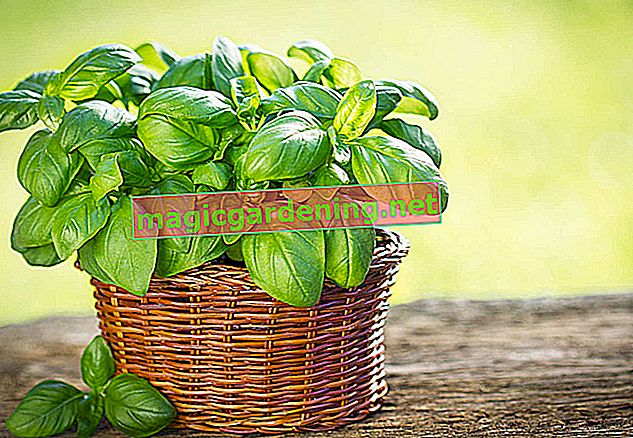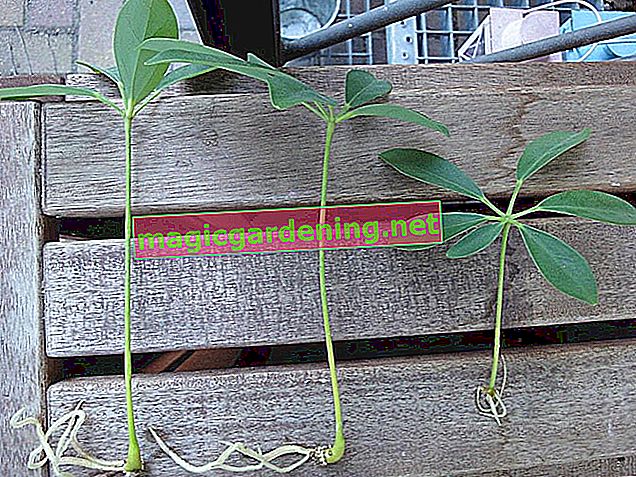
Cutting the cuttings: when, with what and how?
If you shorten your Schefflera or prune it back vigorously, you will get shoots that you can use for cuttings. It is important that these are healthy.
also read
- Schefflera: Obtain and develop offshoots
- Velvet hydrangea - Propagation succeeds via cuttings and by division
- The Schefflera can be propagated with these methods!
You can use different parts of the Schefflera as cuttings. So you can cut leaf cuttings, head cuttings or trunk cuttings. The best time to cut the cuttings is in spring between January and March or in late summer.
Trunk cuttings are cut with secateurs. Head cuttings and leaf cuttings can be cut off with a knife. Make sure that the cuttings are 10 to 20 cm long! The leaf cuttings should keep their long stem - this is used for rooting.
Water or stick the cuttings
So it goes on:
- remove the lower leaves from head and stem cuttings
- Leave 3 to 4 sheets
- Prepare either a glass with water or pots with potting soil
- Place cuttings in the glass or 3 to 5 cm deep in the pots
- for the glass variant: add charcoal ash (prevents rot)
- with the pot variant: pour on and keep moist for the next time
Time to root
Now it's time to wait! Depending on the ambient temperature (ideally 20 ° C) and the light conditions, it can take between 4 and 12 weeks for the cuttings to be rooted. If the rooting is successful, you will see the white root threads in the glass. You can recognize the rooting of the pot cuttings by new shoots / leaves.
Repot and care for cuttings
After the cuttings are rooted, they are potted / repotted. Repot the cuttings that you have grown in pots when they have grown 3 to 5 cm. When the young plants have grown 10 cm high, they can be fertilized for the first time. From now on it is important not to neglect watering.
Tips
The cultivation of the cuttings of the ray aralia in pots is preferable to cultivation in glass, as this does not damage the fine roots by inserting them into soil.

